The Echo MS system can acquire data extremely rapidly, at 1 second per sample. To achieve this speed, it should be ensured that there is adequate time between ejections for the analyte signal to return to baseline between ejections. Plating your samples such that you...
Tags
6 Signs it’s time for a new vendor
A lab’s success depends on many factors from instrument quality to efficient operations, including being partnered with the right vendor. A vendor is more than just a supplier. They should provide you with a high-level quality of support in maximizing the lifespan and performance of your systems, reducing downtime, enhancing ROI and more. How do you know if you’re partnered with the right one? Here are six signs it might be time to find someone new.

Selecting an LC-MS system for quantitation of pharmaceutical drug development
We understand you are busy, needing to prioritize running instruments, reporting results and managing your laboratory to meet deadlines. We created a solution guide to explain how SCIEX systems fit in the drug development pipeline to save you time evaluating options.

PFAS analysis in food: a robustness study in sensitivity and stability
The combination of per- and polyfluoroalkyl substances (PFAS) testing, trace-level regulatory requirements and complex MS applications can be intimidating. In a recent webinar, now available on demand, SCIEX PFAS expert Craig Butt demonstrated how the new SCIEX 7500+ system can help make PFAS testing easier.

Your success and voice go a long way!
At the heart of everything we do is ensuring that your workflows and team are empowered to achieve optimal results with your SCIEX instruments, software, consumables, and services. Every interaction with SCIEX is designed to support your success through the dedication...

LC-MS system replacement: Are you ready?
Meeting deadlines in a bioanalysis laboratory can be a big challenge. Older, less sensitive and less reliable LC-MS systems make it even more difficult. Even the disruption caused by the installation and validation can be disconcerting and delay decisions. Does this sound familiar?
Questions and answers to help improve your mycotoxin analysis
During a recent webinar I shared method details for mycotoxin analysis on the SCIEX 7500 system. In this blog i will share the Q&A for the submitted questions that we did not have chance to answer during the live webinar.

Guide decisions during cell line development with more information at the intact level
Monitoring product quality attributes (PQAs) throughout monoclonal antibody (mAb) development is vital to ensuring drug safety and efficacy. By adopting orthogonal analytical techniques and integrating new technologies that have the potential to provide more information, it is possible to improve product quality and manufacturing efficiency and make more informed decisions.

Unlock the benefits of nominal mass spectrometry for NPS analysis
The development of analytical methods for the detection and quantitation of drugs and metabolites in a range of biological matrices is a challenging process. Forensic toxicology labs need a reproducible and reliable methodology to ensure the robustness of the data and the quality of the results. They also need robust and sensitive instrumentation that can detect drugs at trace levels with high specificity, especially when it comes to novel psychoactive substances (NPS), which can be difficult to monitor and control.

Metabolite identification and peace of mind
Managing metabolite identification (Met ID) studies is challenging, so what is at the top of your priority list as you plan the year ahead? Ensuring you have the data needed to manage product safety, meeting deadlines, staff recruitment and training, maintaining compliance, capital expenses, or something else?

Acoustic Ejection Mass Spectrometry at ASMS 2023
For all those interested in learning about all the cool applications possible with AEMS and the Echo MS system, here is a list of presentations at ASMS 2023. Monday: MOH 3:50pm – Intact protein analysis MP 294 – Metabolite identification MP 312 Compound QC Tuesday TOB...
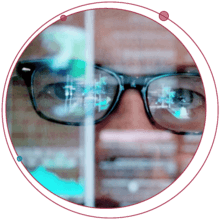
Drugs of Abuse Analysis: How LC-MS/MS Reduced Run Times by 66% and Tripled Throughput
Elevate Performance in Your Forensic Toxicology LabYou only need to skim through the United Nations World Drug Report 2018 to see that drug abuse is escalating. Associated with numerous medical, social, and legal problems, it comes as no surprise that ‘drugs of abuse’...
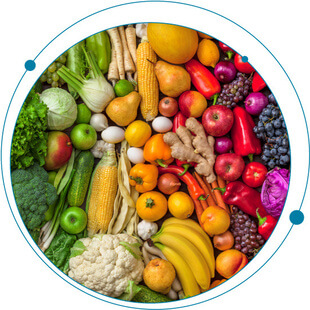
Same Pesticides, Same Risks, Different Standards
Should we be worried about our health because our produce contains pesticides? The answer very much depends on where in the world you live–or where your food comes from. When it comes to protecting people from harmful pesticide residues in food, standards around the...

3 Advantages of Clinical Mass Spectrometry
Are you thinking about replacing existing immunoassay technology with clinical mass spectrometry? Keep reading to discover how the 3 “S”s will help you make the decision. 1. How does sensitivity play a role? Many of the analytes measured in a clinical chemistry lab...
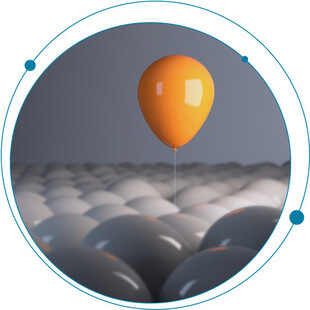
Detect the Signal, Not the Noise
Improving the specificity and selectivity of your assay Your LC-MS assay is only as good as its power to discern your target compound from everything else. Standards dissolved in clean solvents can make beautiful assays, but analytes in real-world samples can behave...

“There’s Nothing Wrong with a Little Bit of Mold.” WRONG!
Has anyone ever said to you, “There’s nothing wrong with a bit of mold”? No one likes to waste food, and it’s not unusual for people to scrape or pick mold off of foods before eating! Believe it or not, there’s guidance on foods that are (and are not) safe to eat if...
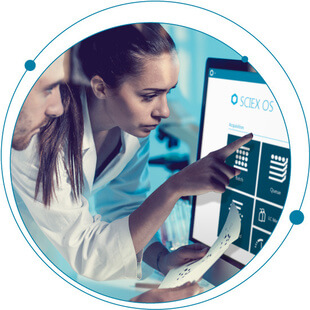
Top 4 reasons to try a SCIEX software subscription
Are you avoiding a software upgrade because of the cost? Just subscribe, sit back, and relax. The majority of SCIEX software solutions are now available as subscription products. For a price that is only 40% of the perpetual license fee, you can get access to more...

Improving Patient Care Through Translational Mass Spectrometry
Featuring: Wake Forest® Baptist Health Steven Wong, Ph.D., DABCC (TC), FACB, Past President AACC, Professor of Pathology, serves as Director of the Clinical Chemistry and Toxicology Core Laboratory and is Co-director of the Clinical and Translational Mass Spectrometry...

Software Licensing Comparison: Subscription or Perpetual?
Are you confused by software licensing? Do you want to know the difference between a subscription and a perpetual license? In this blog, we compare both options and explain the value of each choice for your laboratory. Years ago, the perpetual license model was the...
Make the Leap from GC to LC-MS/MS
Choosing the best technique for your analysis can be tough. Should you go with gas chromatography/mass spectrometry (GC-MS) or liquid chromatography/tandem mass spectrometry (LC-MS/MS)? That’s the key question. That’s why we’re here to help. The Limitations of...

Why Mass Spectrometry for Your Clinical Lab?
Aaron Hudson, VP/GM, Clinical Diagnostics, SCIEX Aaron Hudson is Vice President and General Manager, Clinical Diagnostics at SCIEX. Aaron has been with SCIEX for over 17 years, beginning as a Sales Representative, and holding various roles including Director Global...
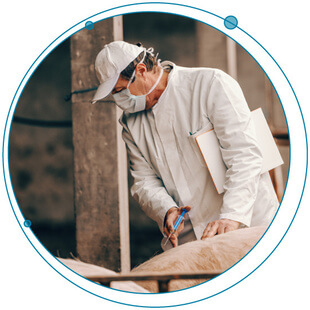
Bad Leftovers: Antibiotic Residues in Food
We know that antibiotics used to treat livestock can end up in the food we eat. Routine food testing labs are essential for detecting compounds, like these, that can be dangerous to our health. Antibiotic residues include both parent molecules and metabolites left...
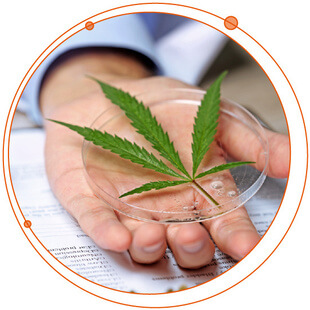
Canada’s Focus on Cannabis Quality and Safety Intensifies
The Second in a Three-Part Series Welcome to the second in a series of blogs from the cannabis team at SCIEX, designed to bring you up to speed and put you in the lead of the recently legalized cannabis market in Canada. In the first blog, we introduced the Cannabis...
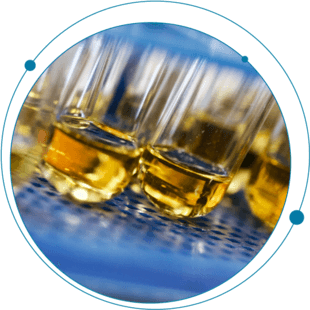
Looking for Ethanol Metabolites and Barbiturates in Urine? Get the Fast and Sensitive ‘Two Bird, One Stone’ Method
Alcohol is legal and widely available, but it is an intoxicating and addictive substance that can have harmful effects on the human mind and body. It reduces inhibitions and distorts judgment and rational decision making, making it the number one cause of criminal...
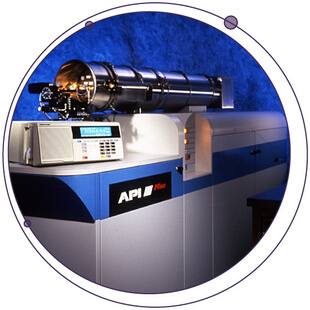
Sensitivity, It’s at the Very Heart of Who We Are
Walk into any modern pharmaceutical company these days, and you’ll likely find at least one if not many, SCIEX LC-MS/MS instruments. Assays for the detection and quantitation of small molecule drugs, metabolites, biotherapeutics, biomarkers, and many other analytes...
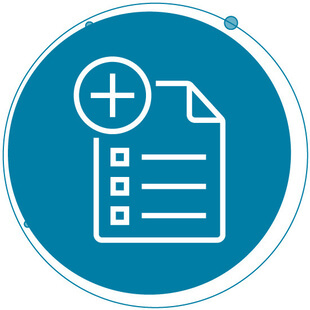
The Advantages of a Software Maintenance Agreement
You’ve bought your mass spectrometer. You’ve installed all your hardware. You’ve got your operating software set up. You’ve mastered your software workflow modules to optimize quantitative and qualitative data processing. That’s it, right? Even though your system is...
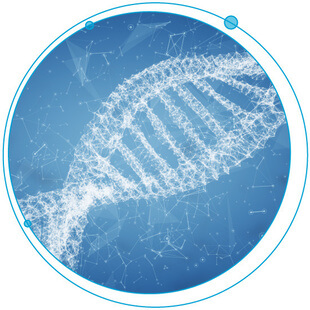
You’ve Edited the Gene. Now What?
Protein-Level Verification Without The Need For Antibodies Using SWATH® Acquisition. Fast, Comprehensive, and Highly Reproducible Although humans have been able to influence the traits of plants and animals for thousands of years through domestication and selective...
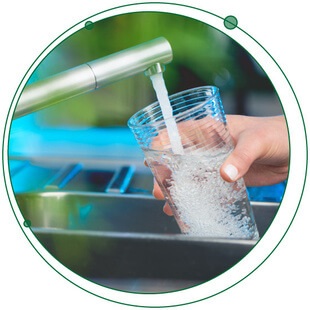
Environmental Scientists: Here’s Why You Should Consider Nominal Mass Spectrometry for Your Routine PFAS and Gen-X Testing in Drinking Water
How are you feeling about PFAS regulation right now? If you’re like us, you probably find it hard to pinpoint one specific feeling. But if we took a look at the current state of affairs, we’d all probably agree that it’s a minefield of uncertainty. Under the Safe...
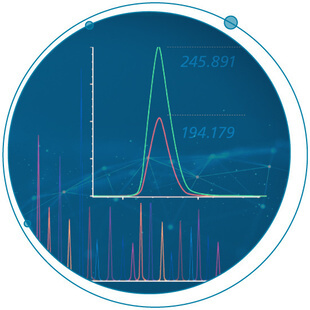
Why Quant?
Every decision you make requires a number As a pharmaceutical scientist, you understand the challenges in getting a new drug through the discovery and development pipeline. As an innovation partner in mass spectrometry, SCIEX works continuously with you, our...
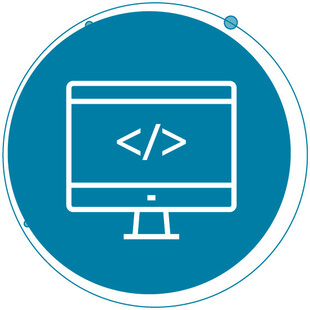
6 Tips to Keep Your Lab’s Software Up and Running
6 Tips to Keep Your Lab’s Software Up and Running Is your lab utilizing SCIEX instrumentation but hesitant about upgrading to the latest software release? Perhaps you are uncertain about key features, error codes, or output. Not to worry, behind every great mass...
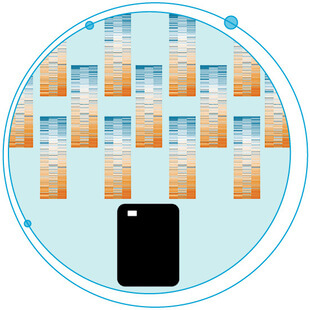
A Smart Way to Profit from the Wealth of Biobanks
Microflow LC with SWATH® Acquisition for Digitizing Biobanks What if you could access thousands of high-quality samples for your research? What if these samples were well-annotated biological specimens? And what if they were carefully segmented into just the...